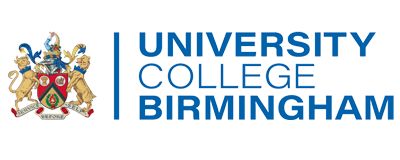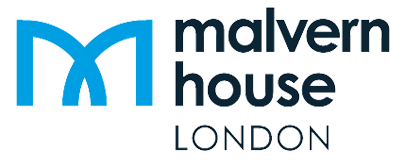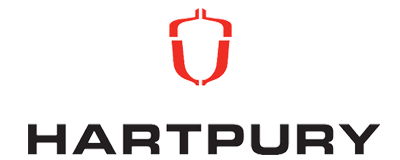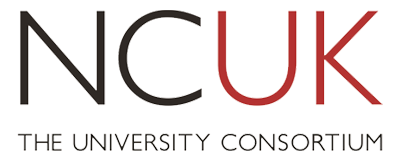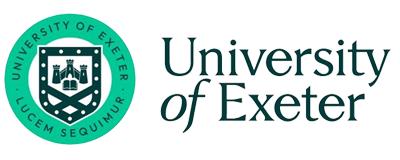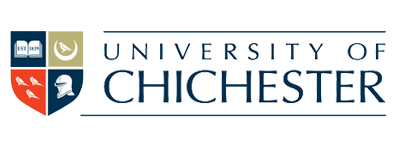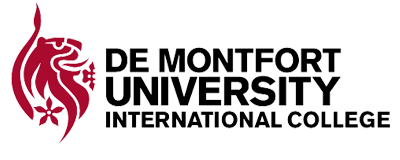Why is Dubai the best location for Nepalese students?
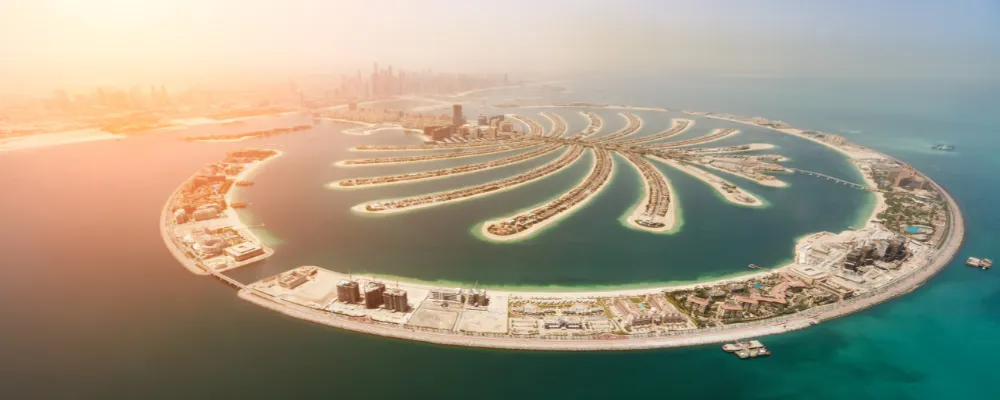
Dubai may be considered an attractive location for Nepalese students for several reasons, but whether it is the “best” location depends on individual preferences, academic goals, and career aspirations. Here are some factors that may make Dubai appealing to Nepalese students:
- Quality Education Institutions: Dubai is home to several reputable universities and educational institutions offering a diverse range of academic programs, including undergraduate, postgraduate, and professional courses. These institutions provide high-quality education with internationally recognized qualifications.
- Multicultural Environment: Dubai is a cosmopolitan city known for its diverse population comprising people from various nationalities, cultures, and backgrounds. Nepalese students can experience cultural diversity, interact with students from around the world, and broaden their perspectives.
- Business and Career Opportunities: Dubai is a major hub for business, commerce, and industry, offering abundant opportunities for internships, part-time jobs, and career advancement. Nepalese students can gain practical work experience, build professional networks, and explore career opportunities in various sectors such as finance, tourism, hospitality, and technology.
- Strategic Location: Dubai’s strategic location at the crossroads of Europe, Asia, and Africa makes it a gateway to global markets and a hub for international trade and investment. Nepalese students studying in Dubai can benefit from its proximity to emerging markets and opportunities for business collaboration and networking.
- Modern Infrastructure and Lifestyle: Dubai boasts modern infrastructure, world-class amenities, and a high standard of living, offering a comfortable and convenient lifestyle for residents. From luxury shopping malls and entertainment venues to pristine beaches and cultural attractions, Dubai provides a vibrant and dynamic environment for students to live and study.
- Safety and Security: Dubai is known for its safety and security, making it a favorable destination for international students, including Nepalese students. The city has low crime rates, strict laws, and efficient law enforcement, ensuring a safe and secure environment for residents.
- English as a Medium of Instruction: Many universities and educational institutions in Dubai offer programs taught in English, making it accessible to Nepalese students proficient in the language. Studying in an English-speaking environment can enhance language skills and facilitate academic success.
- Scholarship and Financial Aid Opportunities: Some universities and organizations in Dubai offer scholarships, grants, and financial aid packages to international students, including Nepalese students, to support their education and alleviate financial burden.
While Dubai offers several advantages for Nepalese students, it’s essential for students to thoroughly research and consider factors such as tuition fees, living expenses, visa regulations, and career prospects before making a decision. Additionally, consulting with educational advisors, alumni, and professionals in their desired field can provide valuable insights and guidance in choosing the right destination for their higher education journey.
Which courses are good for Nepalese students in Dubai?

Nepalese students studying in Dubai have a variety of courses and fields of study to choose from based on their interests, career aspirations, and academic strengths. Dubai offers a diverse range of educational opportunities across various disciplines, and some courses may be particularly well-suited for Nepalese students considering the job market, industry demand, and personal interests. Here are some courses that Nepalese students may find beneficial to pursue in Dubai:
- Business Administration and Management: Business programs such as Business Administration, Management, Finance, Marketing, and Entrepreneurship are popular choices for Nepalese students in Dubai. These programs offer a solid foundation in business principles, leadership skills, and management strategies, preparing students for careers in various industries and sectors.
- Engineering: Engineering programs, including Civil Engineering, Mechanical Engineering, Electrical Engineering, and Computer Engineering, are in demand in Dubai’s rapidly growing infrastructure and construction sectors. Nepalese students interested in engineering can explore specialized fields such as Renewable Energy, Environmental Engineering, or Aerospace Engineering.
- Information Technology (IT) and Computer Science: With the increasing demand for IT professionals globally, courses in Information Technology, Computer Science, Software Engineering, and Cybersecurity are highly sought after in Dubai. These programs equip students with technical skills and knowledge to pursue careers in software development, IT consulting, network administration, and cybersecurity.
- Hospitality and Tourism Management: Dubai’s thriving hospitality and tourism industry make it an ideal destination for Nepalese students interested in Hospitality Management, Tourism Management, Hotel Administration, or Culinary Arts. These programs offer opportunities for hands-on experience, internships, and career advancement in the hospitality sector.
- Healthcare and Nursing: Healthcare programs such as Nursing, Pharmacy, Health Sciences, and Public Health are essential for addressing the healthcare needs of Dubai’s diverse population. Nepalese students interested in healthcare professions can pursue studies in these fields to contribute to the healthcare sector’s growth and development.
- Architecture and Design: Dubai’s iconic skyline and innovative architectural projects make it an inspiring environment for students pursuing studies in Architecture, Interior Design, Urban Planning, or Landscape Architecture. These programs offer opportunities for creativity, design exploration, and sustainable development.
- Media and Communication: Courses in Media Studies, Communication, Journalism, Digital Media, and Film Production are relevant in Dubai’s dynamic media and entertainment industry. Nepalese students interested in media and communication can develop skills in storytelling, digital content creation, and media production.
- Logistics and Supply Chain Management: With Dubai’s strategic location as a global logistics hub, courses in Logistics, Supply Chain Management, and International Business are valuable for students interested in the transportation, shipping, and logistics sectors.
These are just a few examples of courses that Nepalese students may consider studying in Dubai. It’s essential for students to research and evaluate their options based on their interests, academic goals, and career aspirations, and to choose programs that align with their strengths and future plans. Additionally, seeking guidance from educational advisors, industry professionals, and alumni can provide valuable insights into the best courses and career pathways in Dubai.
Which cities in Dubai are said to be education hubs for Nepalese students?

- Academic City: Dubai Academic City (DAC) is a dedicated campus-style development that hosts several universities, colleges, and educational institutions. It is one of the largest educational hubs in Dubai and offers a wide range of undergraduate, graduate, and professional programs in various fields.
- Knowledge Village: Dubai Knowledge Village (DKV) is another prominent educational free zone in Dubai that houses numerous universities, training institutes, and academic centers. It is specifically designed to promote education and research and offers programs in diverse disciplines including business, technology, media, and more.
- Dubai International Academic City (DIAC): DIAC is a sprawling educational complex that encompasses Academic City and Knowledge Village, offering a wide array of academic programs and courses from leading international institutions. It serves as a hub for higher education and research in Dubai.
- Dubai Healthcare City (DHCC): Dubai Healthcare City is a specialized healthcare free zone that hosts medical colleges, research centers, hospitals, and healthcare facilities. It is an ideal destination for Nepalese students interested in pursuing studies and careers in healthcare, medicine, and allied health professions.
- Dubai Marina/Jumeirah Lakes Towers (JLT): While not specifically designated as educational hubs, areas like Dubai Marina and Jumeirah Lakes Towers are popular residential areas for students due to their proximity to various universities, colleges, and amenities. Many students choose to live in these areas while studying in Dubai.
What are the eligible criteria for Nepalese students to apply in the Dubai?

The eligibility criteria for Nepalese students to apply for studying in Dubai, UAE, depend on various factors including the level of study (undergraduate, graduate, or Ph.D.), the specific university or institution, and the program of interest. While eligibility criteria may vary between institutions and programs, here are some common requirements for Nepalese students applying to study in Dubai:
- Academic Qualifications: Nepalese students must meet the academic requirements set by the universities or colleges they are applying to. This typically involves having completed the equivalent of a secondary education (for undergraduate study) or a bachelor’s degree (for graduate study) with a satisfactory academic record. Specific academic qualifications and requirements may vary depending on the program and institution.
- English Language Proficiency: Since English is the primary language of instruction in most universities in Dubai, Nepalese students are generally required to demonstrate proficiency in English. This can be done by providing English proficiency test scores such as IELTS (International English Language Testing System) or TOEFL (Test of English as a Foreign Language). Minimum score requirements may vary depending on the university and program.
- Standardized Tests: Some universities may require Nepalese students to take standardized tests such as the SAT (Scholastic Assessment Test) for undergraduate admissions or the GRE (Graduate Record Examination) for graduate admissions, depending on the program. However, this requirement may not be universal and may vary between institutions and programs.
- Financial Documentation: Nepalese students applying to study in Dubai are typically required to demonstrate sufficient financial resources to cover tuition fees, living expenses, and other costs associated with studying and living in Dubai. This may involve providing bank statements, sponsor letters, or other financial documents as proof of financial ability.
- Visa Requirements: Nepalese students planning to study in Dubai must obtain a student visa from the UAE authorities. Visa requirements may include providing an offer of admission from a recognized educational institution in Dubai, proof of financial means, medical fitness certificates, and other documentation as required by the UAE immigration authorities.
- Health Insurance: Health insurance is mandatory for all students studying in Dubai. Nepalese students must ensure that they have comprehensive health insurance coverage for the duration of their stay in Dubai. Many universities offer health insurance plans for international students, or students may purchase private health insurance coverage that meets the UAE’s requirements.
- Other Requirements: Depending on the program and institution, Nepalese students may be required to submit additional documents such as academic transcripts, letters of recommendation, a statement of purpose, and/or a resume/CV as part of the application process.
It’s important for Nepalese students to carefully review the specific eligibility criteria and application requirements of the universities and programs they are interested in, as requirements may vary between institutions and programs. Additionally, seeking guidance from educational advisors, the respective university’s international admissions office, or the UAE Embassy or Consulate in Nepal can be helpful in understanding and meeting the eligibility criteria for studying in Dubai.
What are the scholarship opportunities for Nepalese students in Dubai?

Scholarship opportunities for Nepalese students in Dubai may vary depending on the university, program, and individual eligibility criteria. While scholarship availability may not be as abundant in Dubai compared to some other countries, there are still some opportunities that Nepalese students can explore. Here are some potential scholarship options for Nepalese students in Dubai:
- University Scholarships: Many universities in Dubai offer merit-based scholarships to outstanding students, including international students from Nepal. These scholarships may cover tuition fees, accommodation, or living expenses, and eligibility criteria typically include academic achievement, leadership qualities, extracurricular activities, and community involvement.
- Government Scholarships: Some government-sponsored scholarships or financial aid programs may be available to Nepalese students pursuing higher education in Dubai. These scholarships may be offered by the government of Dubai, the UAE government, or other organizations, and eligibility criteria and application processes vary.
- Private Scholarships and Grants: Private organizations, foundations, corporations, and philanthropic entities in Dubai may offer scholarships, grants, or financial assistance to Nepalese students based on various criteria such as academic merit, financial need, field of study, or specific demographic criteria. Students can research and explore these opportunities through online databases, scholarship search engines, or directly contacting organizations.
- Industry-Specific Scholarships: Some industries or sectors in Dubai may offer scholarships or sponsorship opportunities to students pursuing studies relevant to their field. For example, companies in the healthcare, engineering, technology, or hospitality sectors may offer scholarships to students interested in pursuing careers in these industries.
- Sports and Extracurricular Scholarships: Nepalese students with exceptional talents or achievements in sports, arts, music, or other extracurricular activities may be eligible for scholarships or financial support from universities or organizations in Dubai. These scholarships may support students’ academic pursuits while also recognizing their talents and achievements outside the classroom.
- Community Scholarships: Nepalese community organizations, cultural associations, or diaspora groups in Dubai may offer scholarships or financial aid to Nepalese students pursuing higher education. These scholarships may be aimed at supporting Nepalese students’ educational aspirations and fostering community engagement and development.
It’s essential for Nepalese students to actively research and explore scholarship opportunities available in Dubai, including those offered by universities, government entities, private organizations, and community groups. Students should carefully review eligibility criteria, application requirements, deadlines, and other details for each scholarship opportunity and apply for those that align with their academic goals and financial needs. Additionally, seeking guidance from university financial aid offices, educational advisors, or scholarship consultants can help students navigate the scholarship application process effectively.
What are the job opportunities for Nepalese students in Dubai?

Nepalese students studying in Dubai have access to a range of job opportunities across various industries and sectors. Dubai’s thriving economy, strategic location, and cosmopolitan environment create a dynamic job market with diverse employment prospects. Some of the job opportunities for Nepalese students in Dubai include:
- Hospitality and Tourism: Dubai’s hospitality and tourism sector is one of the key drivers of the economy, offering numerous job opportunities in hotels, resorts, restaurants, tour companies, and travel agencies. Nepalese students can find employment opportunities in roles such as hotel management, guest services, tour guides, event planning, and customer service.
- Retail and Sales: Dubai’s retail sector is vibrant and diverse, with numerous shopping malls, retail outlets, and luxury brands. Nepalese students can explore job opportunities in retail sales, customer service, merchandising, and store management in various industries such as fashion, electronics, consumer goods, and luxury retail.
- Information Technology (IT) and Telecommunications: Dubai’s rapidly growing IT and telecommunications sector offers job opportunities for Nepalese students skilled in software development, programming, network administration, cybersecurity, and IT support. Many multinational IT companies, telecommunications firms, and tech startups operate in Dubai, providing employment opportunities in these fields.
- Engineering and Construction: Dubai’s ongoing infrastructure development projects, including skyscrapers, highways, airports, and urban developments, create job opportunities for Nepalese students with engineering qualifications. Roles in civil engineering, mechanical engineering, electrical engineering, project management, and construction supervision are in demand in Dubai’s construction industry.
- Finance and Banking: Dubai is a major financial hub in the Middle East, offering job opportunities in banking, finance, investment management, and financial services. Nepalese students with backgrounds in finance, accounting, economics, or business administration can explore roles in banking operations, corporate finance, investment analysis, and financial advisory services.
- Healthcare and Nursing: Dubai’s healthcare sector is growing rapidly, driven by increasing demand for quality healthcare services. Nepalese students with qualifications in nursing, pharmacy, healthcare administration, or allied health professions can find job opportunities in hospitals, clinics, medical centers, and healthcare facilities in Dubai.
- Education and Training: Dubai’s education sector is expanding, with a growing number of international schools, universities, and training institutions. Nepalese students with teaching qualifications, subject expertise, or experience in education and training can explore job opportunities as teachers, instructors, academic advisors, or educational administrators in Dubai.
- Logistics and Supply Chain Management: Dubai’s strategic location as a global logistics hub creates job opportunities in logistics, supply chain management, transportation, and warehousing. Nepalese students with qualifications or experience in logistics, supply chain management, or international trade can find employment opportunities in logistics companies, shipping firms, freight forwarders, and distribution centers.
These are just a few examples of job opportunities available for Nepalese students in Dubai. It’s essential for students to explore their interests, strengths, and career goals, and to actively network, research job openings, and apply for positions that align with their skills and aspirations. Additionally, seeking guidance from career advisors, industry professionals, and alumni can help Nepalese students navigate the job market in Dubai effectively.
What is the best time for Nepalese students to apply in the Dubai for higher education?

The best time for Nepalese students to apply for higher education in Dubai depends on several factors, including the level of study (undergraduate, graduate, or Ph.D.), the specific university and program, as well as personal circumstances. However, here are some general guidelines on when to apply:
- Undergraduate Studies: For undergraduate programs in Dubai, the main intake typically begins in the fall semester, which starts in August or September. Nepalese students interested in undergraduate study should start their application process at least a year in advance, ideally in the months of September to December of the year preceding the intended start date. Some universities may also have additional intakes in the spring semester, which starts in January or February, but the fall intake is more common.
- Graduate Studies (Master’s): The application timeline for graduate (master’s) programs can vary depending on the university and program. The main intake for graduate programs in Dubai is usually in the fall semester, with application deadlines typically falling between December and February of the preceding year. However, some universities may also offer spring or summer intakes, with application deadlines in the preceding months.
- Ph.D. Studies: Ph.D. programs in Dubai often have more flexible application deadlines, with some universities accepting applications throughout the year. However, it’s advisable for Nepalese students to start the application process well in advance, preferably six to twelve months before the intended start date, to allow time for identifying potential supervisors, preparing research proposals, and meeting any specific admission requirements.
- Visa Processing Time: Nepalese students should also consider the time required for visa processing when planning their application timeline. The visa application process can take several weeks to months, depending on the country of application and other factors. It’s recommended to apply for a student visa as soon as possible after receiving an offer of admission from a Dubai university to avoid any delays.
In summary, Nepalese students should begin their application process for studying in Dubai well in advance of their intended start date, considering the specific deadlines and requirements of their chosen universities and programs. Early preparation and careful planning can help ensure a smooth application process and increase the likelihood of securing admission to their desired program.

